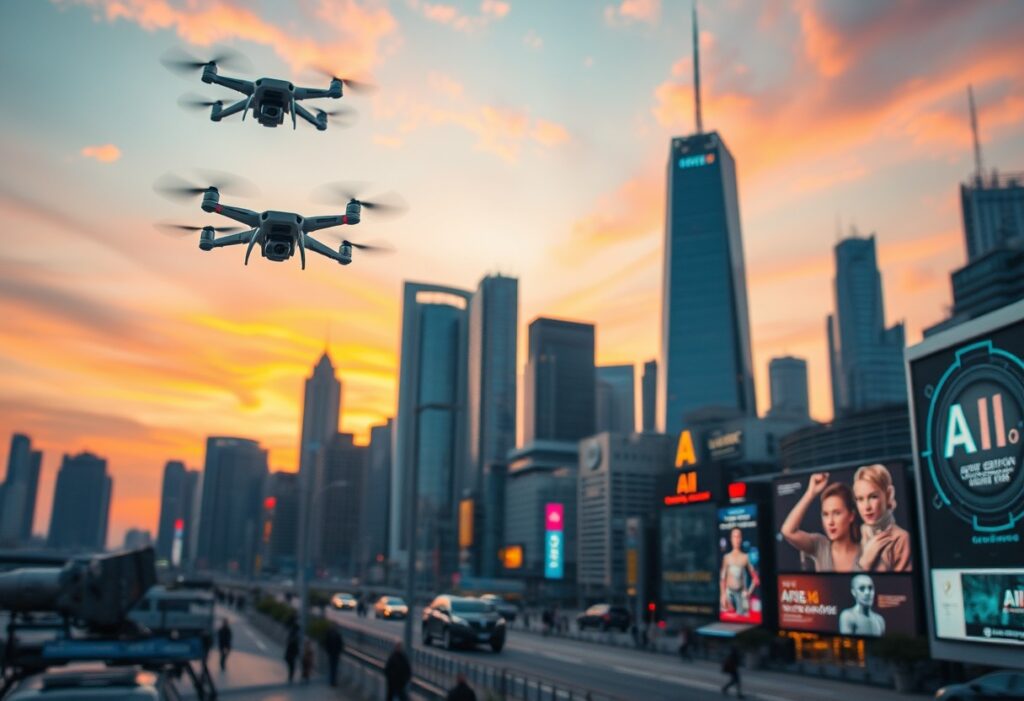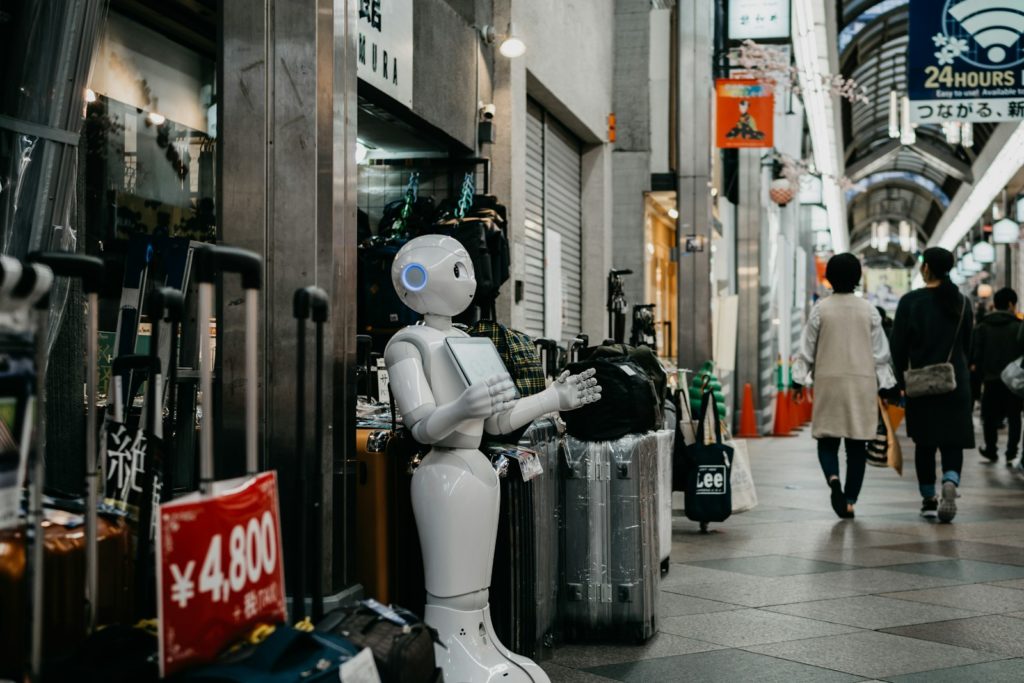It’s crucial for you to stay informed about the evolving landscape of artificial intelligence as it profoundly impacts various aspects of your life. In the next decade, you’ll witness significant advancements in areas such as automated decision-making and human-AI collaboration, which promise to enhance efficiency and creativity. However, these developments also raise ethical and security concerns that you must understand to navigate this rapidly changing environment. Join us as we explore the key trends that will shape the future of AI and how they will affect you directly.
Current State of AI
Table Of Content
- Current State of AI
- Key Trends Shaping the Future of AI
- AI in Business and Economy
- The Role of AI in Everyday Life
- Challenges and Risks Ahead
- Future Innovations in AI
- Final Words
- FAQ about The Future of AI – Trends to Watch in the Next Decade
- Q: What are the key trends in AI development expected over the next decade?
- Q: How will AI impact the job market in the coming years?
- Q: What ethical considerations should be taken into account as AI technology advances?
- Q: Will AI lead to significant advancements in healthcare?
- Q: How will AI influence our daily lives in the next decade?
To understand the current state of AI, you need to recognize its rapid evolution and integration into various sectors. Today, AI technologies like natural language processing, computer vision, and machine learning are transforming industries ranging from healthcare to finance. With organizations increasingly investing in AI, you’re witnessing a shift in how businesses operate, showcasing AI’s potential to enhance efficiency, productivity, and decision-making processes.
Breakthrough Technologies
One of the most significant advancements in recent years is the evolution of deep learning algorithms, which are now capable of processing vast amounts of data to achieve remarkable outcomes. These breakthroughs are enabling machines to comprehend human emotions, generate realistic images, and even surpass human performance in certain tasks. As these technologies mature, the possibilities for AI applications will continually expand, offering you exciting new tools and solutions.
Market Growth and Adoption
On the front of market growth and adoption, AI is rapidly becoming a cornerstone of competitive strategy across various sectors. Industries that once hesitated are now embracing AI technologies, driven by compelling use cases and tangible results that improve their bottom line. With your participation in this evolving landscape, you can explore the wide-ranging tools and solutions that AI brings to the table, enhancing your capabilities.
Breakthrough technologies are fueling an unparalleled market growth in AI, and the rate of adoption shows no signs of slowing down. From small startups to Fortune 500 companies, businesses are increasingly recognizing the need to implement AI for staying ahead of the curve. As you witness this trend, consider that innovations in AI are not just enhancing productivity but also transforming entire industries. The potential for job creation, improved customer experiences, and data-driven decision-making is vast, making it crucial for you to stay informed and engaged with these advancements. However, as adoption increases, it’s equally important to be aware of the ethical concerns and challenges surrounding AI, ensuring your use of these technologies aligns with responsible practices.


Key Trends Shaping the Future of AI
One major trend influencing the future of AI is the integration of advanced machine learning algorithms and deep learning techniques. As these technologies evolve, they enhance AI’s capabilities, allowing for smarter automation, improved decision-making, and personalized experiences. Furthermore, as AI becomes more embedded in everyday applications across industries, it will drive innovation and transform the way you interact with technology, businesses, and services.
Ethical AI and Governance
For the advancement of AI to be sustainable, ethical considerations and governance frameworks must be prioritized. You will find that companies are increasingly held accountable for AI biases, privacy concerns, and transparency in decision-making processes. Establishing clear guidelines will help ensure that AI serves humanity’s best interests while safeguarding against misuse.
AI in Healthcare
To unlock the full potential of AI, its application within healthcare is pivotal. You will see AI playing a transformative role in diagnostics, treatment planning, and patient monitoring. The potential benefits include improved patient outcomes, reduced healthcare costs, and enhanced operational efficiency.
This shift towards AI in healthcare not only optimizes diagnostic accuracy but also facilitates personalized medicine tailored to individual patient profiles. However, it’s crucial to address ethical challenges, such as maintaining patient privacy and ensuring equitable access to AI technologies. The benefits are significant, including the potential to detect diseases at earlier stages, but you must also be aware of risks such as algorithmic bias and data security vulnerabilities that could negatively impact patient care. Balancing innovation with ethical responsibility is vital as AI continues to reshape the healthcare landscape.
AI in Business and Economy
Unlike previous technological advancements, AI is poised to reshape the very fabric of business and the economy over the next decade. Companies are increasingly harnessing AI to enhance efficiency, streamline operations, and drive innovation. As you explore the trends, consider how AI integration in various sectors may influence competitive landscapes, consumer behavior, and economic growth, ultimately transforming how you perceive business success.
Automation and Workforce Impact
Economy experts predict that automation will significantly disrupt traditional job markets, leading to both job displacement and creation. As you witness these transformations, it’s crucial to recognize the need for upskilling to adapt to a technology-driven workforce, ensuring that you remain relevant in an evolving job landscape.
AI-Driven Decision Making
An rising trend in businesses is the use of AI-driven decision-making tools that enhance analytical capabilities and efficiency. As you implement these technologies, you’ll find that AI can process vast datasets to uncover insights and patterns that humans may overlook, allowing for quicker and more informed decisions.
Automation streamlines processes and reduces human error in decision-making, resulting in more accurate and timely outcomes. However, overreliance on AI can pose risks, especially if organizations fail to maintain oversight or validate AI-generated recommendations. Positive implications include improved operational efficiency and enhanced customer experiences, while the danger lies in potential biases embedded in algorithms and the possible disregard for human intuition. As you venture into AI-driven decision-making, striking a balance between technology and human input will be crucial for sustainable success.
The Role of AI in Everyday Life
Once again, artificial intelligence is transforming how you navigate daily tasks and experiences, making life more convenient and efficient. From optimizing your workflow to enhancing your leisure activities, AI seamlessly integrates into various aspects of your routine. You will find AI playing a significant role in improving decision-making, personalizing services, and providing innovative solutions that can positively impact your overall quality of life.
Smart Homes and Personal Assistants
Homes equipped with AI technology are becoming increasingly common, allowing you to control various aspects of your living space with ease. Your personal assistants, powered by AI, can help manage household tasks, adjust lighting and temperature, and even provide security feedback, granting you comfort and peace of mind. As these technologies advance, your interactions will grow more intuitive, leading to a more automated and enjoyable living experience.
AI in Education
Personal learning experiences are being revolutionized by AI, enabling you to access tailored resources and support based on your unique needs. With intelligent tutoring systems and personalized assessments, AI fosters a more engaging educational environment.
The emergence of AI in education signifies a transformative shift in how you learn. AI technologies can analyze your learning patterns and adapt content to suit your pace and style, thereby enhancing your retention and comprehension. Furthermore, these tools can provide real-time feedback and support, minimizing the risk of falling behind. However, this reliance on technology also raises concerns about data privacy and potential biases in AI algorithms. As you embrace the benefits of AI in education, you must remain aware of these challenges to ensure a balanced approach to learning.
Challenges and Risks Ahead
Not all aspects of AI development are positive; you must also consider the significant challenges and risks that arise as technology evolves. As AI becomes more integrated into daily life, issues such as data privacy, security threats, and the potential for misuse of AI technologies require your ongoing attention and proactive measures to ensure ethical and responsible usage.
Data Privacy and Security
Ahead, the growing concern around data privacy and security will become more pronounced as AI systems increasingly rely on vast amounts of personal data. You will need to be aware of how AI processes your information and the implications this carries for your privacy. Ensuring robust measures are in place to protect your data from breaches and unauthorized access will be crucial as we move toward a more AI-driven future.
Misinformation and AI Bias
One of the emerging challenges you will face is the spreading of misinformation and inherent AI bias. This can skew public perception and decision-making, leading to significant societal implications.
Risks associated with misinformation and AI bias are multifaceted. As AI systems increasingly generate content autonomously, you may find it challenging to distinguish between fact and fabrication. This can erode trust in information sources and affect the credibility of media. Additionally, AI systems trained on biased data can perpetuate or amplify societal stereotypes, potentially leading to discriminatory outcomes in critical areas such as hiring and law enforcement. It is vital for you to advocate for transparent AI practices and engage in critical thinking to mitigate the harmful effects of these biases and misinformation.

Future Innovations in AI
Keep an eye on the horizon, as the future of AI is poised for groundbreaking innovations. Expect to witness advancements that not only improve existing technologies but also pave the way for entirely new applications. These innovations will likely be intertwined with emerging fields, leading to synergies that enhance productivity, creativity, and decision-making processes in various industries.
Quantum Computing and AI
Innovations in quantum computing stand to revolutionize AI by enabling faster data processing and enhanced problem-solving capabilities. As quantum computers become more accessible, you can anticipate developments that allow AI systems to tackle complex computations that were previously infeasible. This partnership will significantly influence optimization problems, cryptography, and machine learning, making AI even more powerful and efficient.
Human-AI Collaboration
To harness the full potential of AI, the focus will shift towards enhancing human-AI collaboration. By integrating AI technologies into your workflow, you can improve decision-making, creativity, and productivity. This cooperative approach will allow AI to support, rather than replace, humans, providing tools that enhance your capabilities in various tasks.
Another critical aspect of human-AI collaboration is its ability to unlock creative potential and promote innovation. By combining your unique skills and insights with AI’s analytical power, you can achieve unprecedented results. However, it’s important to be aware of the potential risks, such as over-reliance on AI and ethical concerns surrounding decision-making. Balancing these factors will be necessary for ensuring a future where AI enhances your abilities while maintaining human oversight and judgment.
Final Words
Conclusively, as you look ahead to the next decade, staying informed about the emerging trends in AI will be crucial for harnessing its potential effectively. You should pay attention to advancements in ethical AI practices, automation capabilities, and the integration of AI in diverse sectors. By understanding how these trends will shape technology and society, you can better position yourself and your endeavors in an increasingly AI-driven world.
FAQ about The Future of AI – Trends to Watch in the Next Decade
Q: What are the key trends in AI development expected over the next decade?
A: Several key trends are anticipated in AI development over the next decade. These include advancements in machine learning algorithms, increased integration of AI into various industries such as healthcare, finance, and transportation, the rise of ethical AI and regulations governing AI technologies, enhanced focus on explainable AI to make AI decisions transparent, and the growth of AI in augmented and virtual reality applications. Moreover, there is expected to be a significant increase in the use of AI for data analysis and personalized experiences.
Q: How will AI impact the job market in the coming years?
A: AI is likely to significantly reshape the job market. While it may automate certain tasks and roles, leading to job displacement in repetitive and mundane jobs, it will also create new opportunities in AI development, maintenance, and oversight. Jobs that require complex decision-making, creativity, and human interaction may see an increase as AI handles more routine tasks. The key will be for the workforce to adapt through reskilling and upskilling to meet the evolving demands of the AI-driven economy.
Q: What ethical considerations should be taken into account as AI technology advances?
A: As AI technology rapidly advances, several ethical considerations must be addressed. These include ensuring equitable access to AI technologies, preventing bias in AI algorithms, safeguarding user privacy and data security, and establishing accountability for AI decisions. There will be a push for establishing industry-wide ethical guidelines and frameworks, as well as government regulations to mitigate risks and promote transparency in AI development.
Q: Will AI lead to significant advancements in healthcare?
A: Yes, AI is poised to bring significant advancements to healthcare. Over the next decade, we can expect AI to enhance diagnostic accuracy, predict patient outcomes, and optimize treatment plans. AI-driven tools will likely facilitate personalized medicine by analyzing genetic data to tailor treatments for individuals. Additionally, AI can improve operational efficiencies in hospitals and medical facilities, thereby enhancing patient care and reducing costs.
Q: How will AI influence our daily lives in the next decade?
A: AI is expected to have a profound influence on our daily lives in the coming decade. From personalized virtual assistants to smart home devices that learn our preferences, AI will enhance convenience and accessibility. Transportation will see significant changes with the advent of autonomous vehicles, while AI will also play a role in entertainment, providing tailored content recommendations. Furthermore, AI’s integration into education could allow for personalized learning experiences, transforming how we learn and access information.




